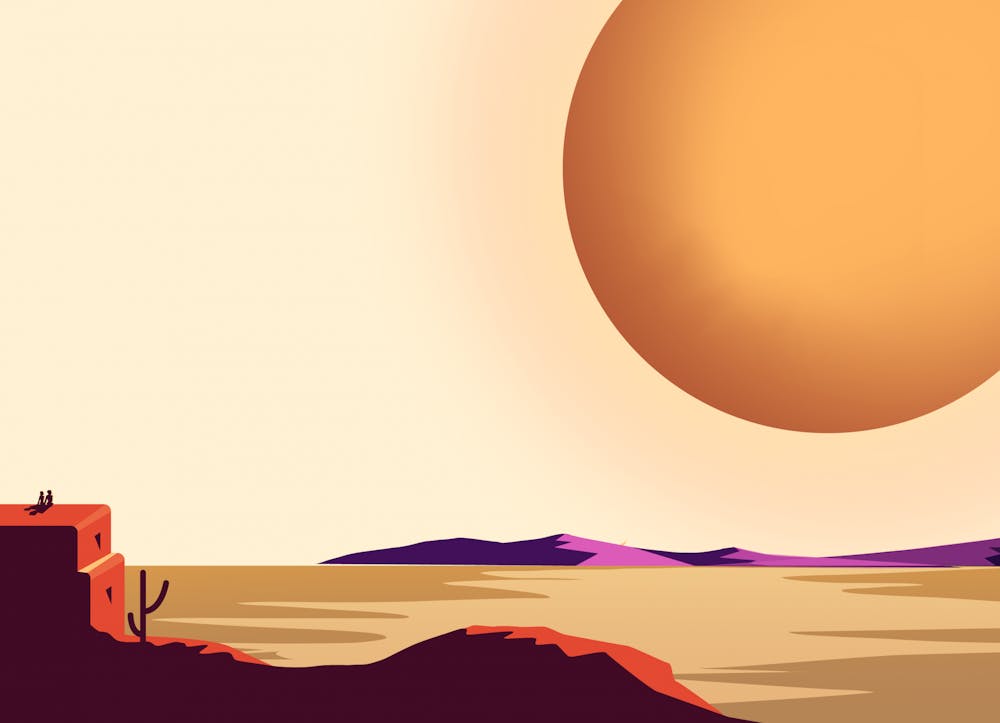In Fall 2021, ASU reported it served the largest Indigenous community within Arizona compared to surrounding universities. These numbers show how crucial it is to have organizations made for the community, as well as those that serve it — organizations such as the American Indian Social Work Student Association.
AISWSA seeks to bring a sense of inclusion and connection to Indigenous students through social work. The organization focuses on the importance of making a difference in the American Indian community in its work and hopes to boost community involvement and participation.
The club, established in 1995, works to build connections between students who share a similar passion for social work with events such as documentary showings, panel discussions and workshops.
Events held in the past have included include a showing of the "Two Spirits" documentary, an Indigenous quantitative methods discussion and a Missing and Murdered Indigenous People Awareness event.
Additionally, AISWSA assists students in advancing themselves in the professional world through developmental trainings, resume building courses and mental health trainings provided by the Phoenix Indian Center.
According to AISWSA President Katonya Begay, several AISWSA alumni are part of the Phoenix Indian Center team; their success displays the way in which networking is immersed into the club, often providing job opportunities for students after college.
Begay, who identifies as Diné and is from the Navajo Nation, highlighted the organization's emphasis on community building when discussing her hopes for the club.
"We want to provide students a space where they can feel safe and have support," Begay said.
She developed a passion for the field after gaining awareness of how the Native American community needed help in social work, particularly after gaining more awareness of missing and murdered Indigenous women and girls. Begay wanted to make a difference for Native American communities that experience the effects of colonial violence, and is now pursuing her master's degree in social work.
Indigenous people, who suffer disproportionately from poverty, human rights violations, and poor access to education and mental health services can benefit from the presence of Indigenous social workers, who better understand Indigenous issues and can rebuild and support programs to best serve the community.
"Being in the social work field is an honor, especially for our tribal communities," Begay said. "My clients now have a therapist that looks like them and understands them."
AISWSA not only acts as a safe space for Indigenous students, but also extends its reach to include anyone seeking to know more about Indigenous involvement in social work. Begay says being an inclusive group is an opportunity to understand who she is as an Indigenous woman and how that translates into the social work field.
Community Coordinator Weston Gale is an ally to the Native American community who became interested in the organization because he wanted to learn and understand more about Indigenous culture.
"Being in the field of social work while learning about my fellow member's tribes has helped me increase my own cultural humility, because I understand the importance of valuing each individual Native American person's beliefs and cultural customs," Gale said.
Gale chose to study social work because he wanted to be a part of the fight against inequality, oppression and injustice.
"I wanted to be in a field where I could be involved in empowering other people to be the best version of themselves regardless of who they are and their circumstances," Gale said.
Vice president Sharlimar DeClay, who is White Mountain Apache and Assiniboine, also discussed the organization's inclusive efforts, citing her connection with Gale as inspiring her to learn more about herself.
"I think that being able to see (Gale's) persistence within our conversations has allowed me to also want to continue growing and learning more about my own culture," DeClay said.
DeClay changed her major from sports science to social work because she wanted to help people more holistically, and felt that instantly opened doors to her academically and personally.
"I believe that social work is a career that is not meant for everyone so being able to know that my calling is within this field is the most rewarding part," DeClay said. "I am able to help people and assure that their needs are being met despite the oppressive factors in our society."
Edited by Sadie Buggle, Reagan Priest, Piper Hansen, Sophia Balasubramanian and Caera Learmonth.
Reach the reporter at lboykins@asu.edu and follow @BoykinsLauren on Twitter.
Like The State Press on Facebook and follow @statepress on Twitter.




